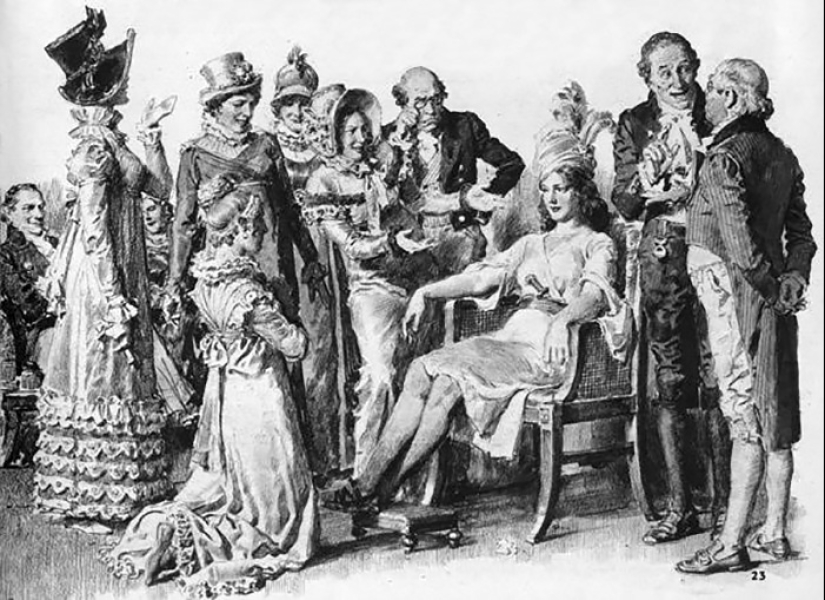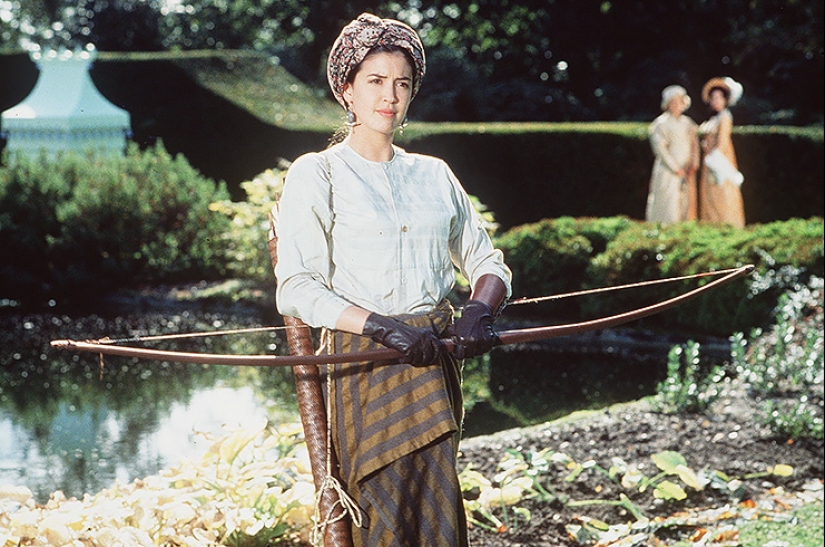The story of Princess Karabu, who was able to fool the whole of Britain
Categories: Europe | History | World
By Pictolic https://pictolic.com/article/the-story-of-princess-karabu-who-was-able-to-fool-the-whole-of-britain.htmlThe girl looked tired and ill. The poor cobbler saw her walking along the road near Bristol. He wouldn't have paid much attention — there are a lot of beggars wandering around the cities, begging for alms. But there was something unusual about the stranger: although her clothes were dirty, they did not look like the rags of ordinary beggars, and the girl was wearing a colorful turban on her head. When the shoemaker asked the traveler if she needed help, she answered him in an unfamiliar language.

It was April, 1817. Not knowing who to turn to or how to help the confused stranger, the shoemaker took her to the parish trustee for the poor, Samuel Worell.
Warall was used to dealing with beggars, but this was a new experience for him: the girl did not know a word of English, but she recognized the painted pineapple. She pointed her finger at him and said clearly, " ananas." This did not help the investigation too much, because this is the name of this plant in many languages.

All Worrall could figure out was that the girl's name was Karabu, and she was clearly not English. Having no idea what to do with Karabu next, Worall turned her over to the authorities, who in turn placed her in St. John's Hospital. Peter, intended for the vagabonds and the poor. The fate of the lost one could have been quite sad, if her babble had not accidentally been heard by a Portuguese sailor.
She revealed that she was the princess of a tiny kingdom lost on an island in the Indian Ocean. She was captured by pirates, but in Bristol Bay, the girl managed to jump overboard. Having made a long way to the shore and exhausted herself, she still escaped.
Later, her story was recorded as follows:
"Princess Karabu was born on the island of Yavasu in the Indian Ocean. She was the daughter of a certain high-ranking person, of Chinese descent, and a "modinka" (Malay woman), later killed during a clash of "bugu" (cannibals) with the Malays.
One day she was walking in her father's garden on the island of Yavasu, when she was lured out by several "samin" (women), and then she was in the hands of pirates under the command of a certain Chi-Min. The bound princess was sent to the ship. The princess herself, freed, dealt with two of the kidnappers, stabbing one of them to death with a Malay kris and seriously wounding the other. His life could only be saved by a local "justy" (doctor).

A few days later, the captive princess was sold to Captain Tappa Boo. The boat took her to the brig. This ship then sailed for four weeks, then at some port took on board four female travelers and landed them five weeks later at another unknown port.
Then the ship sailed for Europe and reached the coast of England in another eleven weeks, but the princess, driven to despair by ill-treatment, jumped overboard and managed to swim to shore.
She then managed to exchange (apparently for food) her gold-encrusted clothes and turban with an English woman living in the green house, and received at the same time the shirt and shawl in which she arrived in Gloucestershire. And finally, after six weeks of wandering, she found a roof over her head."

The authorities, having learned that a royal person had fallen into their hands, even from a distant nameless island, quickly released her from prison. Since there was nowhere to put her, Warall took her under his wing. Mrs. Worrall quickly surrounded Karaba with her care. She introduced her to the local gentry, and the princess was warmly received.
Fabrics were brought to her, and the princess made herself a fancy garment with sleeves to the ground, a wide embroidered belt, and a turban. Everyone was fascinated by her strange habits, completely out of character for a girl of the XIX century. She was an excellent bowman, knew how to fence, swam naked in lakes, prayed "Allah Tallah" with one hand covering her eyes, and drank and ate only from dishes that she washed with her own hands.

The servants of the house of Warell, and not only them, were initially skeptical of the stranger, considering her no more than an adventurer. But the princess played her part brilliantly: she never once got the words mixed up or lost her way in another language, even in her sleep she mumbled in her own dialect.
She was also taken to London, where the artist painted her portrait. Which was the reason for her exposure.

Apparently, Karabu was still afraid of being found out, because once she even tried to escape from the Worrall house. Unsuccessfully, however. And after the escape, she fell ill with typhus and was between life and death for several days.
At this time, her portrait appeared in the newspaper, and it was recognized by a certain Mrs. Neal. The woman said that the portrait was not a princess, but Mary Willcox, by her husband — Baker. An ordinary daughter of a beggar cobbler in Devonshire. Mary, she said, served in several houses and rented a room from Mrs. Neal, entertaining her children with the language of her own composition.
There was nowhere to go, and Mary Baker confessed to her outburst. Interestingly, she never used her lies for profit, because during the escape, she did not even try to take away expensive gifts or jewelry from the Worrall house. Everything suggested that Mary was simply endowed with an amazing imagination, which made the whole world seem small to her.
Mary was reluctant to talk about her life as a servant, and each time she changed her story so that even those who knew her could not tell which was true and which was fiction. Most likely, Mary was the daughter of a poor shoemaker, and at the most tender age she had to work hard. When Mary grew up, she took a job as a servant in a rich house. The work seemed too hard for her, and she was even going to hang herself, but the "voice from above" stopped her.
Mary's stories were full of vivid details, and it was impossible to distinguish truth from fiction: they included bandits and the oath on the dagger, an illegitimate child and gypsies. Her former employers called her a "wild and strange" girl.

These days, Mary could have been a writer, an actress, or a director — her imagination knew no bounds. If she had been born in a different era or in a different family, things might have been different.
Keywords: Fiction | Kingdom | Princess | Strange
Post News ArticleRecent articles

It's high time to admit that this whole hipster idea has gone too far. The concept has become so popular that even restaurants have ...

There is a perception that people only use 10% of their brain potential. But the heroes of our review, apparently, found a way to ...
Related articles

Yuuki Morita is a promising young sculptor and artist from Japan. The source of inspiration for him was nature, its diversity and ...

Have you ever thought about what our life would be like if we chose not the path of technological progress, but unity with nature? ...

Probably, everyone has heard the legend about 300 Spartans who courageously resisted the numerically superior enemy army until ...

New Year's is a time to surprise and delight loved ones not only with gifts but also with a unique presentation of the holiday ...